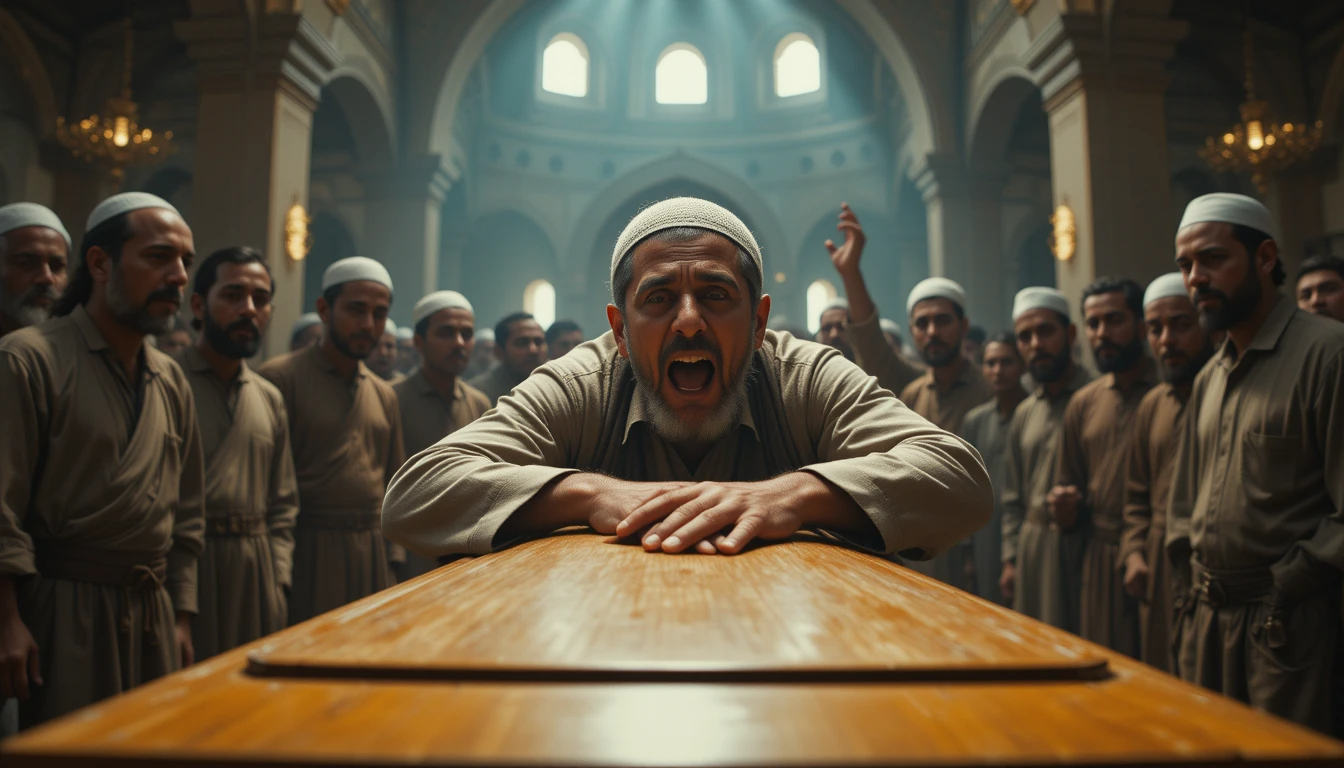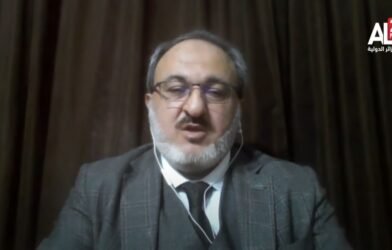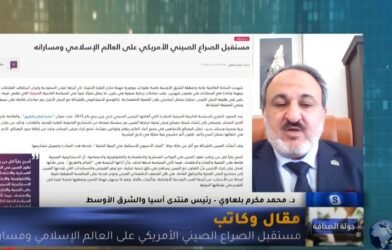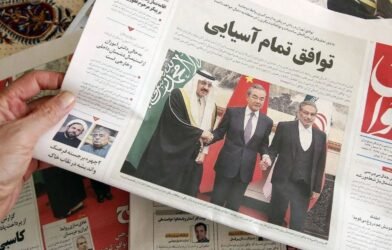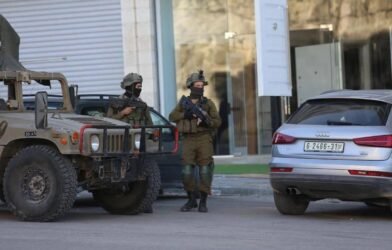Subtotal $0.00
(true story)
He grabbed the wood of the coffin lying on the ground in front of the imam of the mosque, crying, shouting and calling out unintelligible words, his eyes full of tears, reddened like embers from the intensity of crying, and his voice echoed in the dome of this old Mamluk mosque next to the city cemetery, only to return amplified as the sound of a band of wailing women hiding in the walls, but this scene is not surprising in this mosque, where the dead have been brought for hundreds of years to pray for them and bury them in the neighboring cemetery, even if the wailer is a man over fifty with gray hair and a harsh peasant appearance. Even if the wailing is a man over fifty with gray hair and a tough peasant appearance, how many men with gray hair on their heads and even on their souls have cried for their dead like the youngest children, wailed, slapped their faces, ripped their clothes, and did things in this mosque before, all this and more are used to the worshippers of the mosque, especially its elderly imam. However, this man with broad shoulders and red eyes refused to leave the coffin alone, until a short time passed and he was glued to it and did not want to get out of the way. Worshippers began begging him to move away to let people pray for the dead, but to no avail, then the begging turned into pleading and the man refused to leave the coffin despite all attempts by those present, and even his crying would turn into screaming whenever anyone tried to move him away from the coffin. Then three men approached him and began to persuade him to calm down and taste, but they could not, so the people of the dead in the other coffins had no choice but to intervene and try to convince him to let the imam pray for their dead and then let him do what he wanted, but this time he lay down on the coffin and held it like holding a wooden board in the middle of a choppy ocean that he feared would slip off and be the end of him. Many words of pleading and persuasion were repeated: "O brother, O our brother, O our beloved, O the son of Halal, for my chin, O Tayyib, wipe it with my beard..." Some of them tried to remove him from the coffin by force, so he stayed near the coffin, standing like a tiger preparing to crush his prey, and a terrifying look appeared in his eyes, and he began to hurl insults of every kind and caliber, and threatened anyone who dared to take the coffin away from him A deafening commotion arose in the mosque between protesting his obscenity, wondering about his condition and questioning his motives, each trying to understand the subject in his own way and from his point of view, when the Imam intervened, trying to break up the dispute, "Brother, we will all die, none of us will be immortalized in this world, what you are doing is haram, did you not know that the dead are tormented by the wailing of their family over them." The man says in a troubled voice that comes out between short gasps:
"What's wrong with me? What's wrong with me?" At that moment, the Imam realized that the situation was different from what he understood, but the attack of three men on the crying man left no room for the Imam to understand the situation, and with lightning speed, a fist fight broke out, which was quickly dispersed by the hands of good deeds and under the influence of phrases such as "Unite God, do not call the Prophet, shame the devil, we are in the house of God, people, this is not right..." The Imam realized from his thirty years of experience in praying for the dead that there was an unusual situation, which aroused both his concern and curiosity, and made him more interested, "Go back, you and him, Laura, we are in the house of God." The Imam called out to the rushing crowd, then addressed them firmly, "Leave the man alone until we understand the situation." One of those standing wanted to volunteer an explanation, but the Imam gave him a snarl that made him fall silent, and he lowered his eyesight under the influence of the Imam's fiery gaze. The Imam sighed a long sigh and fixed his gaze on the insulting man and said to him in a tone that had a lot of irritation, "O man, did you not know that the dead are only allowed mercy, and we are in a house of God, so why did you say what you said about the dead when I thought you would kill yourself in grief for him?"
The man's eyes became red and tears began to run down his cheeks like little markets, and he gasped as he wiped his eyes, and said:
"Sir, ask them," he pointed to the three men in their loose country clothes standing at the feet of the coffin with their heads lowered to the ground, as if trying to fade into thin air, "ask them if I did not give their dead relative this," he pointed his finger at the coffin, "four thousand pounds, which is all I have, to pay me back, but he died and did not do so. Ask them if they, themselves, were not witnesses to this."
The Imam and the worshippers looked at the three men, who had turned into what looked like transparent paper out of shame, and shook their heads in agreement. The Imam asked them if the deceased had left an inheritance that could pay off the man's debt, and they nodded their heads in the negative, and the creditor cried out: "God is great! God is great! I am a poor man and all my money is gone. By God, do not bury the deceased until my money is returned to me."
Then the Imam decided that there would be no prayer for the dead until the family paid his debt, so a huge commotion erupted in the mosque, and people gathered in small circles each trying to solve the issue, and perhaps the most affected by this calamity were the families of the other dead who carried heavy loads of anxiety and fear for the fate of their dead in this heat in addition to the grief of their loss, so they began to beg the Imam to find a legal way out of this crisis before their dead bodies stink and smell, and the Imam with his head and a thousand swords would not budge from his position and would not pray for any of the deceased until the issue was resolved, and the group of the families of the deceased leaned on the owner of the debt, begging him to forgive what he owed them. The group of the people of the dead turned to the owner of the religion, begging him to forgive his right and started kissing his head and patting his shoulder and explaining how he is a generous man and worthy of everything good and how he will forgive now because he does not want a man to go to hell because of him, but he did not forgive and did not stop waving his head left and right while repeating one phrase constantly "My right, people, my right, people", then this group soon turns to the people of the dead, all of them hoping that they will find the solution there. They warn them of the consequences of not paying the deceased, how this is a great sin and shame for them, and how the fate of the deceased will be in the bottom of the Fire with Pharaoh, Haman, Abu Jahl and perhaps even lower than that, but they would clap their hands and shake their heads and then turn their pockets and swear with the strongest oaths that they are poor and have nothing, so they borrowed money to pay for the shroud, and if the matter were in their hands, they would not delay for one moment in paying and would not put themselves in this awkward situation. Then the group returns again to the creditor, begging him and kissing his hands this time and dragging him towards the people of the dead to waive his right, but he withdraws his hand from their hands and refuses to reconcile, holding on to the orphan phrase "My right, people, my right, people." When the people of the dead give up on him, some of the worshippers who think they can succeed where others failed take their turn, so that some people of the dead started crying and shouting "Haram, people, the world is hot and the smell of the dead will rise." They are supported by a group of worshippers who want to go about their business, reassured that the issue is over: "Honor the dead by burying them, our brothers." The imam hears everyone's words and is determined not to waste the creditor's right by praying for the dead, because if he does so, the crowd will soon disperse and the poor man's right will be gone with him.
Finally, a loud call echoed throughout the mosque, which was far from calm and peaceful: "Unite God! What are you monotheizing?" The response came as if from the pores of the walls and from every atom in the place, "There is no god but Allah, Muhammad is the messenger of Allah."The Imam, who was tired of all these endless arguments and negotiations and was tired of the heat and the smell of death that had already begun to spread in the air, then ordered the audience to sit in their places, but a few people were unable to be ordered by someone, even if it was the Imam of the mosque, so they remained standing, so the Imam had to violently injure them and his voice was strained like a bow that is about to shoot millions of arrows. The standing people melted into the ground, and soon there was silence. The Imam looked to the right and left, then heaved a long sigh, lifted his turban and wiped his polished baldness with a cloth handkerchief, then he sighed and began his speech with praise, prayer and peace on the Messenger of Allah, and read in a voice that caused reverence in the hearts and reminded of God and His Messenger, and then moved on to the biographies of the companions, followers and the righteous. He reminded of the unity and solidarity of Muslims and that they are like a body, and if one member complains, the rest of the body will help him with safety and fever, until enthusiasm and zeal flowed in the bodies of those sitting like a hot electric current, and chivalry flowed in their veins so that it was difficult for one of them to stay seated, then the Imam called for a prayer that rose In a tone that gradually faded, he prayed and saluted his Holy Prophet and invited everyone to donate to settle the debt of their dead brother, so each of them took out what was in his pocket and put it in the Imam's cloak, which he spread on the ground, so that some of them went to his house or shop to bring money, and some of them borrowed from their neighbors to contribute to the relief of the dead man's distress and share in the reward. And a banknote after a banknote, and a coin after a coin, a large pile of money gathered in the cloak of the Sheikh and people continued to throw money until there was not a single person in the mosque, young or old, who did not participate, and when the flow of donors finally stopped, the Imam called if anyone wanted to donate, so when no one answered him and realized that everyone had done their duty and more, he raised his voice and addressed the creditor, whose eyes left signs of sadness and were replaced by signs of pleasure and satisfaction, saying:
"Hey, man, you with the debt, do you want to take what these good people donated like this without counting? What do you think?" The Imam was asking this question knowing full well that the amount may not reach what the man is asking for because it is in small denominations and most of the people in the neighborhood are poor, so he wanted to make a quick deal that would end all this tug-of-war. He accepted the Imam's offer with a smile that grew bigger and bigger until harmony replaced discord, and the people of the deceased shook hands with the creditor as a sign of consent and embraced, and the mosque was filled with takbir and praise A feeling of self-satisfaction came over those present, and the relatives of the other dead, whose dead began to smell because of the heat, urged the Imam and everyone to hurry up with the prayer, so the Imam announced in his confident voice the funeral prayer, and people lined up in the rows with the feeling that they were praying for a great guardian or a greater one, and they felt that they were praying for a great guardian As soon as the imam pronounced the first takbir, they began to pray from the depths of their hearts as they had never prayed before, each of them praying with the heart of a saint or a guardian, and they felt their souls clearing, elevating, and rising in the sky of the mosque and then uniting into one great soul, transparent and delicate. As soon as they started praying, the mosque erupted in tears and the tongues of the worshippers were filled with prayers that came to mind from higher heavens, and the worshippers almost saw angels with their own eyes as they escorted the deceased, who had been saved from the burden of debt, to the paradise of bliss, whose doors were opened and its people lined up. The imam of the mosque, who used to pray over funerals a long time ago, was so moved that he prayed, increased and repeated, and prolonged the prayer and mercy, until the breasts were healed and the sorrows were gone, as if the people were at a wedding rather than a funeral. As soon as he delivered the call for the end of the prayer, he raised his palms in supplication, and people believed in his supplication until the raised hands were tired and the legs were tired, then he prayed to the Holy Prophet and concluded the supplication, then he called all people to carry their deceased to his final resting place, so people came from all sides and carried the coffins. People came from all sides and carried the coffins on their shoulders, each one competing with the other for the sake of reward, and it was only seconds until all the coffins rose from the ground on the shoulders of the mourners, except for one coffin that did not rise, and no one advanced towards it, and the Imam was surprised by this, as it was the same coffin that the troubles had arisen around. The Imam looked around, hoping to see one of the three men, the family of the deceased in the coffin, but he did not see any of them, he searched for the creditor whose voice still echoes in the sides of the mosque, but he did not see him, the Imam became restless and started asking for them, but none of the standing people saw them, he called them with loudspeakers, but there was no answer. He approached the coffin and lifted the lid to find a huge cotton pillow replacing the alleged deceased, his eyes widened, his mouth gaped, and he couldn't help but whisper, "You sons of devils."




